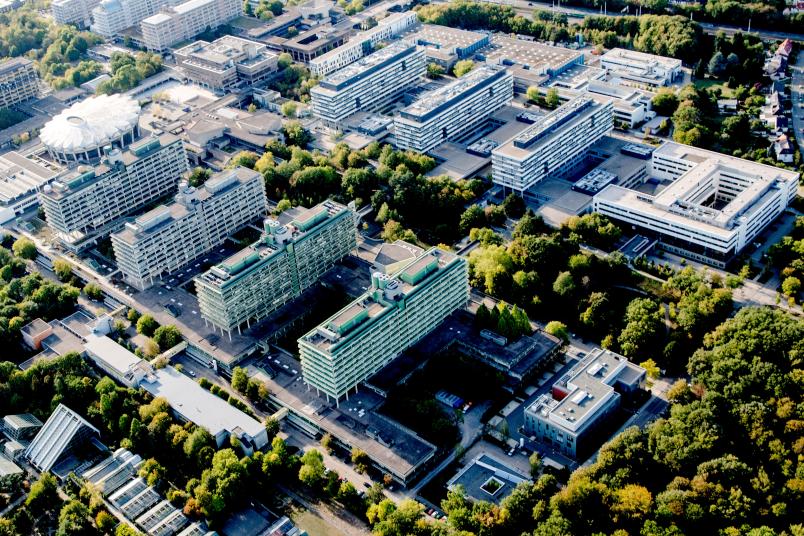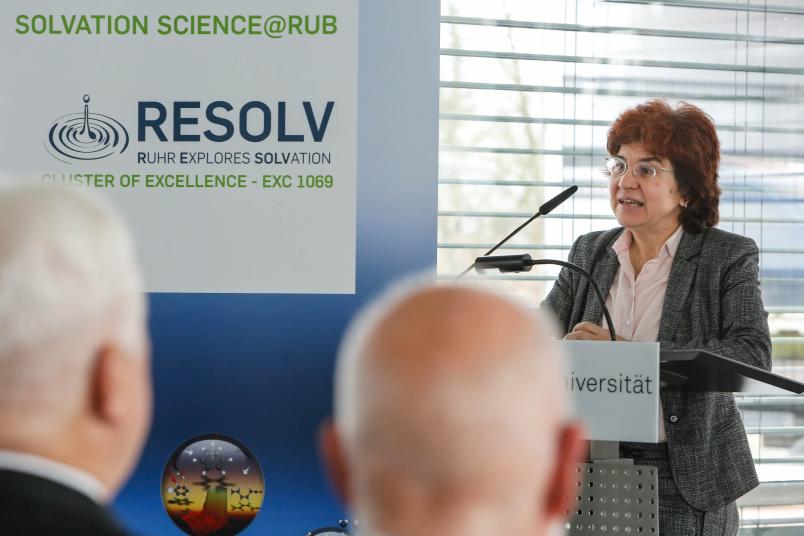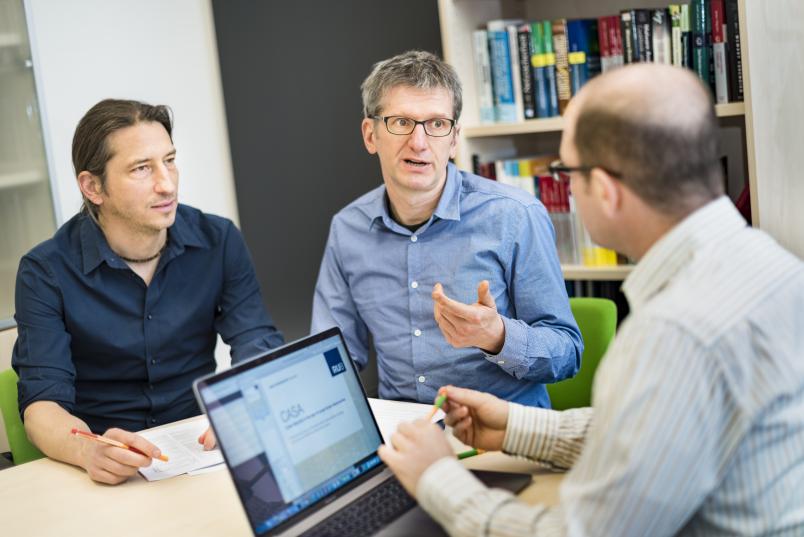Success
Two Clusters of Excellence approved
Major success in Bochum: two Clusters of Excellence go to Ruhr-Universität.
Ruhr-Universität Bochum (RUB) has been very successful in the first round of the nationwide Excellence Strategy: from 2019, two Clusters of Excellence will be funded:
- Cyber Security in the Age of Large-Scale Adversaries (Casa) as well as
- Ruhr Explores Solvation (Resolv): Understanding and design of solvent-dependent processes – a joint cluster with TU Dortmund University.
“We are very proud of the achievements of our top researchers and the success at this crucial point of the competition,” says Rector Professor Axel Schölmerich. “With this development, we are confidently moving on to the next round, in which we will be applying with an innovative concept in the University of Excellence funding line.”
Boost for the Ruhr area
“The tens of millions in funding for the two clusters over seven years will give the entire Ruhr region an additional boost. It is increasingly becoming an attractive location for internationally leading research,” says Schölmerich.
“IT security is a promising topic for the future, which will be further anchored in the region and considerably strengthend through the Casa cluster,” says Professor Andreas Ostendorf, Prorector for Research, Transfer and Early Career Researchers, delighted. “The clusters benefit from the mutual support in the region. At Resolv, RUB and TU Dortmund University are already cooperating successfully with scientists from Duisburg-Essen and other non-university partners.”
Cluster Resolv
Most chemical reactions, important industrial processes and almost all biological processes take place in the liquid phase. The team from the Resolv Cluster of Excellence wants to understand how the solvent is involved in the control, mediation and regulation of chemical reactions. More than 200 chemists, physicists and engineers are working together to decipher the role of solvent molecules and develop new concepts for industry based on their findings.
“We are delighted to be funded again and to be able to tackle the future challenges of solvation science”, says Professor Martina Havenith, speaker of Resolv. “We will now explore chemical processes beyond ambient conditions, beyond thermal equilibrium and beyond homogeneous bulk phase to advance the development of important technological applications, such as energy conversion and storage, or the development of smart sensors.”
The German Research Foundation (DFG) already supported the Resolv Cluster of Excellence at RUB from 2012 to 2018. It has since developed a dense network in solvation research based on the Bochum cluster, with Resolv as its hub – both within the region and internationally.
Cluster Casa
IT security has become a central societal issue since networked devices have permeated our world. Hacker attacks against the Bundestag or large industrial plants prove the explosive nature of this problem. Today, many IT attacks come from large-scale attackers, especially from governmental or semi-governmental organisations. These adversaries are particularly worrisome because they act long-term and have significant technical capabilities and resources.
Countermeasures against these most powerful attackers are the focus of the Cluster of Excellence “Cyber Security in the Age of Large-Scale Adversaries”. The research follows an interdisciplinary approach, in which leading scientists with a technical orientation cooperate with researchers from psychology who investigate the interaction of human behaviour and IT security. This constellation is unique in Europe.
In the Transfer Lab, the research results are examined with regard to their practical relevance in various critical application scenarios from the fields of intelligent production, logistics and e-health.
“Computer scientists, mathematicians, engineers, and psychologists will work closely together in the Casa cluster. We are convinced that this internationally unique research approach will enable us to develop new security solutions that offer truly sustainable cyber security,” emphasise RUB professors Thorsten Holz, Eike Kiltz and Christof Paar, who are the spokespersons for the cluster.





